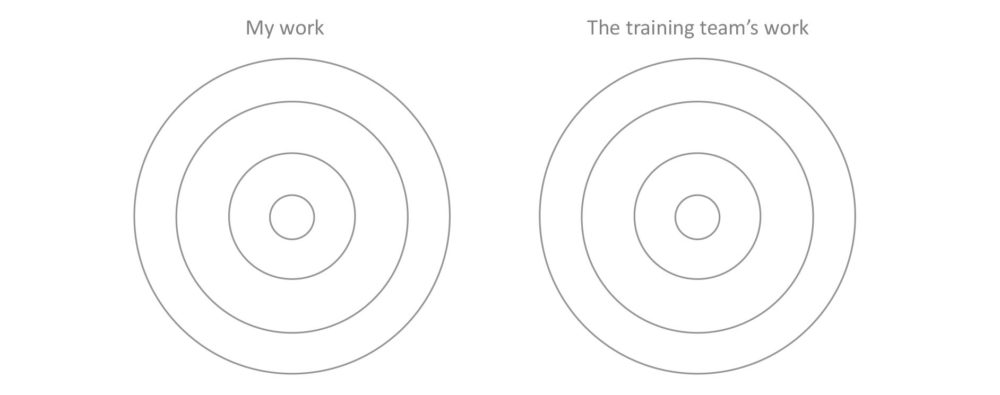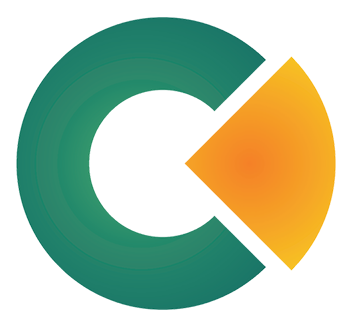Evaluation
Workshop Example
Game
I Will… / I Need…
Type of exercise: Independent work, presentations in plenary
Duration: 30 minutes
Materials: Different coloured post-its, pencils
Exercise description
Distribute several post-its in various colours to participants. Participants should think about what they have gained from the training, what they have learned, and what they can do when they return home as an (additional) contribution to peacebuilding. Their task is to write these thoughts down but to begin each sentence with “I will…” or “I need…” (one sentence per post-it). Afterwards, participants go up to the wall newspaper one by one to read what they have written down and stick their post-its up.
A Pebble for a Present
Type of exercise: Plenary work
Duration: 20 minutes
Materials: Pebbles
Exercise description
The morning or evening before the exercise, ask participants to go for a short walk, alone or with company, and to each find one pebble that they can bring to the final workshop. At the beginning of the exercise you should check that everyone (including the training team) has a pebble.
Everyone sits in a circle. The task is for everyone to give their pebble to another person in the group with words of support. Each person receives a single pebble and puts it on the floor in front of them as a sign to others that they have already received a pebble.
Variation
Alternatively, if looking for pebbles proves to be too difficult, the training team can make sure a pile of pebbles is available in the centre of the room so that people can take a pebble and give it to someone.
Also, the object doesn’t have to be a pebble. It can be a flower, a leaf, an abandoned snail shell or some other natural object.
Creating a Certificate
Type of exercise: Plenary work
Duration: 40 minutes
Materials: Coloured paper, pencils, small pieces of paper with the names of everyone written on them, “hat”
Exercise description
Write the names of everyone present beforehand on small pieces of paper (one name per paper). Everyone draws one of these from the “hat”; if they draw their own name, they put it back and take another. Their task is to think up and write out a diploma on a piece of coloured paper for the person whose name they drew. Then there is a diploma ceremony: one by one the participants get up to explain to whom and for what they are awarding a diploma.
Targets
Type of exercise: Plenary work
Duration: 10 minutes
Materials: A big paper with targets drawn on it, felt-tips or small stickers
Exercise description
Draw targets on the big pieces of paper beforehand (see image). Above each target is one of the following topics:
– My work
– The group’s work
– The training team’s work
– Methods used at the training
Participants should express their satisfaction with what they have been offered by marking the targets with felt-tip pens or small stickers. The more satisfied they are, the closer they should place their mark to the centre of the target; the less satisfied they are, the further away it will be.

Note
At our training, the training team usually leaves the room while the participants are doing this task.
One Word
Type of exercise: Plenary work
Duration: 10 minutes
Materials: Big paper, felt-tips
Exercise description
A large piece of paper is placed on the floor. Participants have to think of a single word that would describe the training and to write it down on the paper. The paper should be large enough for multiple people to write at the same time. This can be done at the same time as the Targets exercise.
Oral Evaluation of the Training
Type of exercise: Plenary work
Duration: 45–60 minutes
Exercise description
In the plenary, sitting in a circle, people take turns giving their evaluation of the training. For directions, write out guiding questions.
Suggested questions:
- What did you receive from this training?
- What did you like and what didn’t you like?
- General impressions of the training
- How satisfied are you with your work?
- The group’s work?
- The work of the training team?
- Which event from the training was the most significant for you?
- What will you be thinking about when you go back home?
- What kind of changes in yourself did you notice?
- What will this training be useful for?
- Why should we organise a training of this kind again?
- What should we change?
